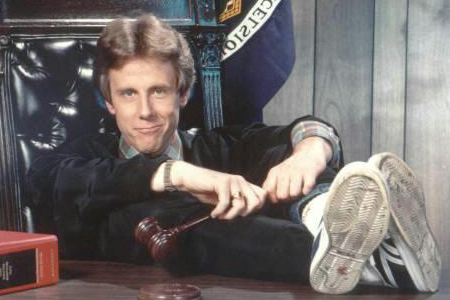Supreme Court Kills California Law Banning Violent Video Games.
Last November, the Supreme Court heard a case regarding video game sales in the state of California. It was kind of a big deal, possibly affecting how other forms of media were treated in regards to rules and regulations. Today the Supreme Court gave their decision, which smote the law with the power of a thousand Judicial Leg Drops.
At least that’s how it looks in my mind.
Joystiq:
The Supreme Court of the United States has issued its opinions on Brown v. The Entertainment Merchants Association, a case which argued the Constitutionality of a (since struck down) California state law which banned the sale of “violent” video games to minors. The majority opinion, decided upon by seven of the court’s nine Justices, is to once again strike down the law.
The majority opinion, in clear terms, states:
Like the protected books, plays, and movies that preceded them, video games communicate ideas-and even social messages-through many familiar literary devices (such as characters, dialogue, plot, and music) and through features distinctive to the medium (such as the player’s interaction with the virtual world). That suffices to confer First Amendment protection. Under our Constitution, “esthetic and moral judgments about art and literature . . . are for the individual to make, not for the Government to decree, even with the mandate or approval of a majority.”
The decision falls in line with other decisions of the lower courts regarding video game-banning legislation, such as the respective decisions of the Northern District of California Court and the Ninth Circuit Court of Appeals, both of which found the law unconstitutional. There was, of course, a dissenting opinion (in this case, representing the concerns of Justices Thomas and Breyer) which states:
The practices and beliefs of the founding generation establish that “the freedom of speech,” as originally understood, does not include a right to speak to minors (or a right of minors to access speech) without going through the minors’ parents or guardians. I would hold that the law at issue is not facially unconstitutional under the First Amendment, and reverse and remand for further proceedings.
Go-go-gadget First Amendment. Or something.




